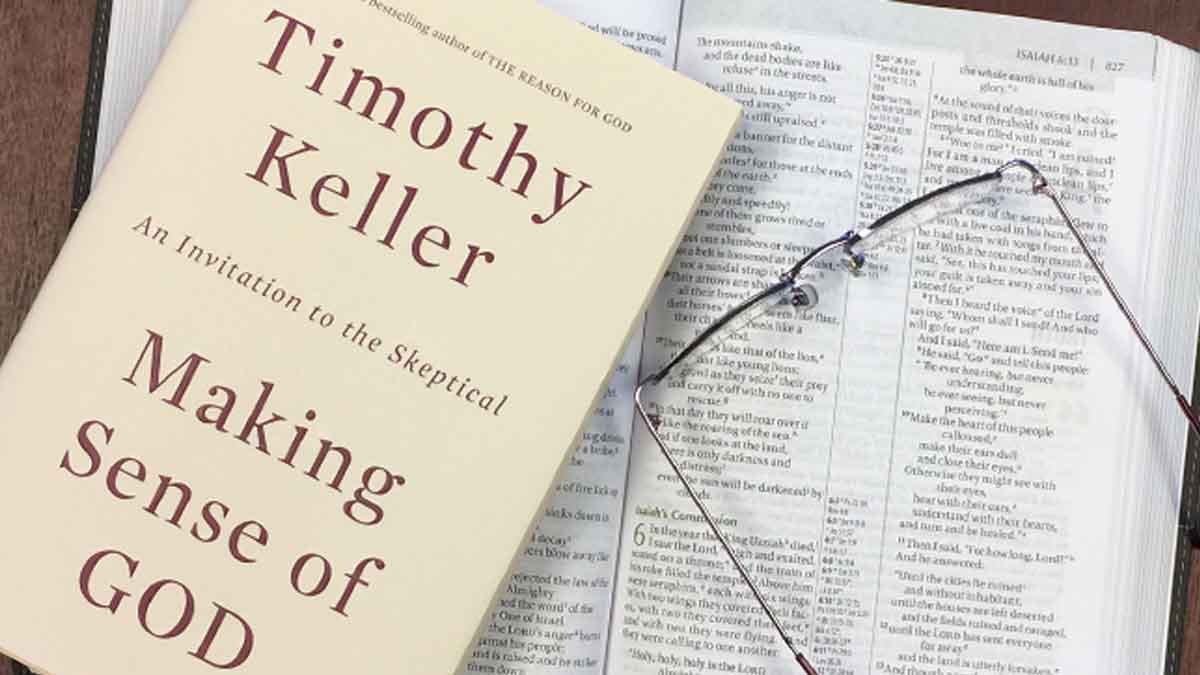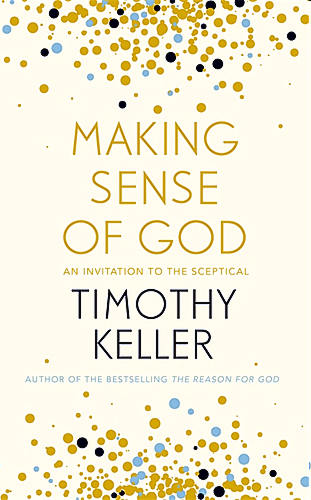Keller, Timothy. Making Sense of God: An Invitation to the Sceptical. London: Hodder & Stoughton, 2016.
ABOUT AUTHOR
Timothy Keller was serving as pastor at the Redeemer Presbyterian Church, New York, which was planted by him in 1989. Later in 2017, he founded Redeemer City to City (CTC), a church planting organization. Keller has gained his education from Bucknell University, Gordon-Conwell Theological Seminary, and Westminster Theological Seminary.
PURPOSE OF THE BOOK
Keller offers a strong Christian defence against postmodern scepticism in one of his book ‘The Reason for God’ which was released in 2007. Later he realised that it was missing content to address the people who do not consider “Christianity is relevant enough to be worth their while” and they write off Christianity entirely “as a blind faith in an age of science, reason, and technology” otherwise deeming “fewer and fewer people will feel the need for religion and it will die out” (p4). He wrote this work ‘Making Sense of God: An Invitation to the Sceptical’ by keeping those audiences in mind and serves as a prequel to ‘The Reason for God’ and explains how Christianity makes sense emotionally and culturally. In a nutshell, this book is about how belief in God or religious faith or Christian faith can make sense to somebody today, especially to a thinking person.
SUMMARY OF THE BOOK
This book divided into three sections. Section One (“Why Does Anyone Need Religion”) exhibits the false theory that societal advancement and secularism are highjacking the religion, moreover, both religion and secularism are built on faith. Section two (“Religion Is More Than You Think It Is”) examines contentment in life, the importance for our value in life, discovering one’s true self, individualism, ethics, hope and justice in both skepticism and faith – matters of great value for someone, irrespective of their worldview. Section Three (“Christianity Makes Sense”) explains as expected: first, it makes the defense for Christianity by examining the sensibleness of trust in God and later faith in Christianity.
Keller uses various sources from many disciplines such as philosophy, science, art, secular views and music to prove his point on the defects of skepticism and secularism without using the Scripture. He relies heavily on the works from Friedrich Nietzsche, Charles Taylor, Michael Polanyi, Terry Eagleton, Miroslav Volf, and Robert Bellah to support his theses. For example, he takes help from Nietzsche to say that many secular people are more charitable and highly moral than pious people.
In his conclusion or the final two chapters, he brings arguments through many lenses (cosmology, teleology, morality, and consciousness). Keller’s reasoning is appropriate and he defends Scripture’s credibility and Jesus’ divinity and resurrection. Though I am not a big fan of endnotes rather I prefer footnotes to avoid flipping pages to the back of the book. However, this book’s seventy pages are filled with endnotes, especially, they are filled with valuable information which is worth to have a look at least once. I appreciate Keller’s work on seeking and describing the truth, and his work shows his humility and generosity. Though I found this book is heavy to process with its information but worth to read it again to cover everything Keller says.
IN RELATION WITH PRACTICAL REALITIES
I think this book is important to both skeptics and believers. This book may not suit everyone in South Asia’s cultural spectrum, however, it may interest metro-secularists. I think ‘Making Sense of God’ provides a safe place for a skeptic or a secular thinker to ponder on the existence of good things like courage and love, intense suffering and their origin. And comparing views on secular worldview and Christian belief may give way for them to think in a way they never did (cross-pressure), more importantly, an evangelical tool for Christians to engage outside the churches.
Keller’s work gives confidence to believers that still Christianity is relevant to today’s world and helps to live faithfully in a secular age. Personally, I was convicted after reading this book that in an area of my life I was influenced by a secular culture. Keller’s writings give a clear picture to a reader to dichotomize secular ideas and biblical values. Moreover, in some cases helps to find out bad theology and creates a great awareness among Christian circles about worldviews. Good apologetics need good theology.

